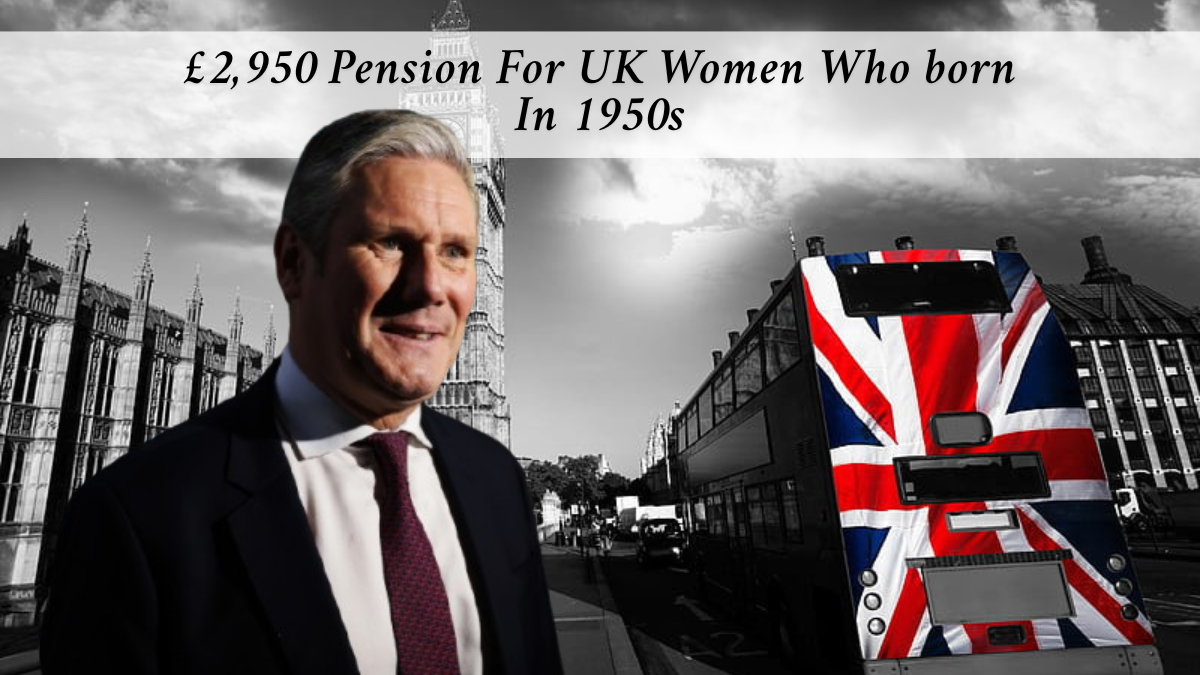The proposed £2,950 pension for women born in the 1950s remains a major topic of discussion in the UK. While the government has rejected the compensation recommendation, millions of women impacted by state pension age changes continue to advocate for fair treatment. This guide provides an in-depth overview of the issue, explains eligibility criteria, and highlights the support available for affected women.

Summary Table Of 1950s-Born Women
| Key Information | Details |
|---|---|
| Topic | £2,950 Pension for 1950s-born Women |
| Eligibility | Women born between 6 April 1950 and 5 April 1960 |
| Max Compensation | £2,950 (Proposed by PHSO) |
| Current Status | Government has rejected compensation scheme |
| Responsible Body | Parliamentary and Health Service Ombudsman (PHSO) |
| Support Options | Pension Credit, Benefits, Charities |
| Official Site | GOV.UK – State Pension |
Background on the Pension Controversy
In 1995, the UK government introduced the Pensions Act to gradually equalize the state pension age for men and women. Previously, women could retire at 60, while men retired at 65. The pension age changes accelerated with further amendments in 2011, increasing the age to 66 for both genders. However, the lack of clear communication led to severe financial hardship for many women born in the 1950s.
The Parliamentary and Health Service Ombudsman (PHSO) later ruled that the Department for Work and Pensions (DWP) had committed maladministration in its failure to notify women of these changes in a timely manner. To address this, the PHSO recommended compensation ranging from £1,000 to £2,950 for the most severely affected individuals.
Despite these findings, the UK government rejected the compensation recommendation, citing financial constraints and concerns over setting a precedent.
Who Is Affected?
The changes primarily impacted women born between 6 April 1950 and 5 April 1960. The state pension age was gradually increased for this group, resulting in delayed retirements.
Impact by Year of Birth
- Born 1950-1953: State Pension age increased from 60 to 63.
- Born 1954-1959: State Pension age rose to 65, then to 66.
Real-Life Examples
- Margaret (Born 1952) expected to retire in 2012 but faced a nearly two-year delay.
- Susan (Born 1955) thought she’d retire in 2015 but had to wait until 2021, enduring a six-year delay.
These abrupt changes forced many women to deplete savings, remain in physically demanding jobs, or rely on financial support from family and government benefits.
Why Was Compensation Proposed?
The PHSO recommended compensation of up to £2,950 to reflect the emotional and financial distress caused by inadequate communication. The suggested payouts were structured based on the severity of the impact:
- £1,000 to £1,500: For moderate impact.
- £2,000 to £2,950: For severe financial hardship and life disruption.
However, the government rejected the compensation proposal, stating that implementation costs would be unsustainable.
Available Support Options for 1950s-Born Women
While compensation has not been approved, several support options are available:
1. Pension Credit
Pension Credit provides financial assistance for individuals over the State Pension age who have a low income. Benefits include:
- Additional weekly income.
- Free TV licenses (for those over 75).
- Cold Weather Payments.
- Reduced Council Tax.
To check eligibility and apply, visit the official Pension Credit page.
2. WASPI Campaign Support
Women Against State Pension Inequality (WASPI) continues to campaign for fair compensation. The organization offers legal guidance, advocacy support, and updates on ongoing political efforts.
Learn more at WASPI’s website.
3. Charitable Support and Additional Benefits
Affected women may also qualify for:
- Housing Benefit for rental assistance.
- Council Tax Reduction schemes.
- Personal Independence Payment (PIP) for those with disabilities.
Charities like Age UK and Independent Age provide financial advice and tailored support.
Next Steps for Affected Women
- Check Eligibility: Apply for Pension Credit and other government benefits.
- Stay Updated: Monitor developments from the PHSO and WASPI.
- Seek Legal Support: Consider contacting legal advocacy organizations if you believe your rights have been violated.
FAQs About the £2,950 Pension for 1950s-Born Women
1. Is the £2,950 pension compensation real?
No. The compensation was recommended by the PHSO but has been rejected by the government.
2. Can I still receive compensation in the future?
Possibly. Advocacy groups are still pushing for compensation, and legal or political developments may reopen the discussion.
3. What other support options are available?
You can apply for Pension Credit, Housing Benefit, and Council Tax Reduction. Support from charities like Age UK is also available.
4. Where can I get advice?
You can contact WASPI, Age UK, or Independent Age for tailored support and legal advice.
5. I never received a pension age notification. What should I do?
If you were not informed about the state pension age change, contact WASPI or seek legal advice to explore your options.
For further updates and information, visit the official GOV.UK State Pension website.
For More Information Click Here